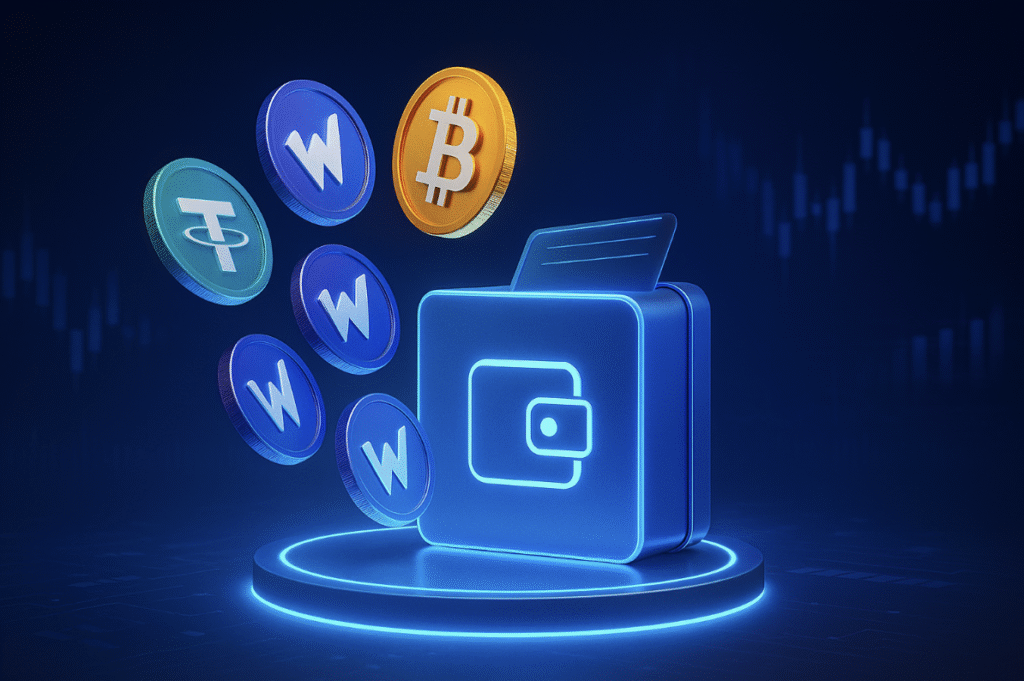
The iGaming industry has long been at the forefront of integrating innovative technologies to meet the demands of its global audience. One of the most impactful shifts in recent years is the rise of cryptocurrency as a preferred payment method. As more players look for secure, fast, and anonymous transactions, iGaming platforms are evolving their payment systems to accommodate crypto payments. This adaptation is transforming the landscape, bringing unique benefits while presenting new challenges for both operators and regulators. Here, we’ll explore how payment systems are evolving to embrace cryptocurrency in online betting and why it’s shaping the future of the industry.
1. Why Cryptocurrency Appeals to iGaming Players
Cryptocurrencies offer several distinct advantages to players that align closely with the needs of iGaming. For one, crypto transactions are often faster and more secure than traditional payment methods, with the added benefit of anonymity. Many players prefer the decentralised nature of crypto, which minimises the need for traditional banking channels and adds a layer of privacy. Additionally, crypto’s digital nature appeals to tech-savvy players who value the speed and efficiency of blockchain-based transactions.
Furthermore, cryptocurrencies like Bitcoin, Ethereum, and stablecoins such as USDT have made it easier for international users to participate in online betting, bypassing currency conversion fees and the restrictions often imposed by national banks or credit card companies. This has created a level playing field for users worldwide, which is particularly appealing in a globalised gaming landscape.
2. Enhanced Security and Fraud Prevention
Blockchain’s decentralised structure and cryptographic principles provide a secure foundation for financial transactions. For the iGaming industry, where security and fraud prevention are major concerns, this is a game-changer. Cryptocurrency transactions are generally irreversible, which means they effectively eliminate chargeback fraud—a frequent issue with credit cards in online gambling.
The use of smart contracts in some cryptocurrencies, such as Ethereum, allows for automated, transparent transactions that enhance security by reducing the need for intermediary control. This added layer of protection reassures both players and operators, contributing to a more trustworthy environment.
3. Adapting Payment Gateways for Cryptocurrency Integration
To support cryptocurrency, payment gateways for iGaming platforms are evolving in several ways. Traditional payment gateways were designed with fiat currencies in mind, often relying on banks or credit card providers as intermediaries. Crypto payment gateways, on the other hand, must facilitate blockchain transactions, which require different infrastructure, security measures, and compliance protocols.
Leading iGaming payment providers are now offering hybrid payment gateways that support both fiat and cryptocurrency transactions. This approach enables operators to reach a wider audience by providing multiple payment options. In addition, these gateways are optimising transaction speeds and costs associated with blockchain confirmations, ensuring that crypto transactions are nearly as fast as conventional methods, if not faster.
4. The Role of Stablecoins in Minimising Volatility
A significant hurdle in adopting cryptocurrency for iGaming is the volatile nature of many digital currencies. This is where stablecoins, which are pegged to stable assets like the US dollar, come into play. By minimising value fluctuations, stablecoins like USDT or USDC provide a secure medium of exchange that reduces financial risk for both players and operators.
Stablecoins offer a way to maintain the benefits of crypto payments while addressing concerns around price volatility, making them increasingly popular in iGaming. Platforms that offer stablecoin payment options can provide a more predictable and stable experience for players who are cautious about using other, more volatile cryptocurrencies.
5. Regulatory Challenges and Compliance Adaptations
As cryptocurrency adoption grows, so too does the need for compliance with regional regulations. The iGaming industry is heavily regulated, and cryptocurrency adds a layer of complexity in terms of legal oversight. To address this, payment providers are implementing Know Your Customer (KYC) and Anti-Money Laundering (AML) processes specifically tailored for crypto transactions.
Cryptocurrency transactions are anonymous but traceable, which has led to the development of tools and protocols that ensure compliance while protecting user privacy. Some platforms, for instance, now use blockchain analytics software to detect suspicious activity while maintaining user anonymity. This balance between regulatory compliance and privacy is crucial to the continued adoption of crypto in iGaming and sets the foundation for safer, more reliable betting experiences.
6. Cost Reduction and Increased Profit Margins
For iGaming operators, one of the biggest advantages of adopting cryptocurrency payments is the reduction in transaction fees. Traditional payment processors and banks often charge significant fees, particularly for international transactions. With cryptocurrency, these fees are generally lower, which translates to cost savings for both operators and players.
The cost-effectiveness of crypto payments means that operators can reduce the charges they pass on to users or reinvest these savings into enhancing platform features. This competitive advantage also encourages more players to choose platforms that support crypto, knowing that they may benefit from lower transaction costs.
7. Building Player Trust through Transparency
One of the most profound advantages of blockchain technology in iGaming is transparency. Each transaction on the blockchain is recorded in a decentralised, immutable ledger, allowing players to verify payments in real time. This transparency builds trust, as players can see their transactions and winnings documented on the blockchain. By allowing players to track their funds through an open ledger, iGaming platforms can enhance trust, which is critical in an industry where fairness and transparency are key to player retention.
Blockchain transparency is also beneficial for operators, as it reduces the likelihood of disputes, fraud, and mismanagement of funds. A transparent ledger helps prevent accusations of tampering, making crypto payments a valuable tool for increasing credibility and building a loyal user base.
8. Future of Crypto in iGaming: Embracing Innovations
As the cryptocurrency landscape continues to evolve, we can expect to see even more advancements tailored specifically for iGaming. Innovations such as lightning networks on the Bitcoin blockchain can facilitate faster and cheaper transactions, potentially making microtransactions a viable feature in iGaming. Additionally, the development of crypto-based loyalty programmes and rewards could further incentivise players, giving them unique advantages for choosing cryptocurrency over fiat currency.
Other emerging trends include the use of decentralised finance (DeFi) for more sophisticated betting markets and the possibility of non-fungible tokens (NFTs) as a way to reward loyal players or signify exclusive access to certain gaming features. As blockchain technology advances, these innovations will open new possibilities for crypto integration in iGaming.
Conclusion
The adaptation of payment systems for cryptocurrency in iGaming represents a significant evolution in the industry, meeting the demands for speed, security, and transparency. By adopting blockchain and crypto solutions, iGaming platforms can offer their players a more efficient, secure, and accessible betting experience while expanding their global reach. Though regulatory challenges remain, the benefits of cryptocurrency in iGaming—ranging from cost reduction to enhanced player trust—suggest a bright future for these payment methods.
As crypto becomes increasingly mainstream, its role in iGaming will likely deepen, driving continued innovation in payment systems. For players and operators alike, the future promises a more streamlined, transparent, and inclusive gaming environment.





